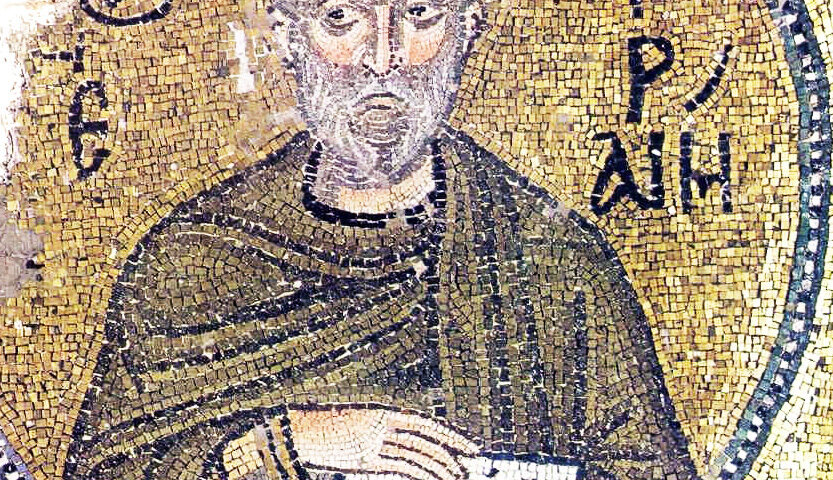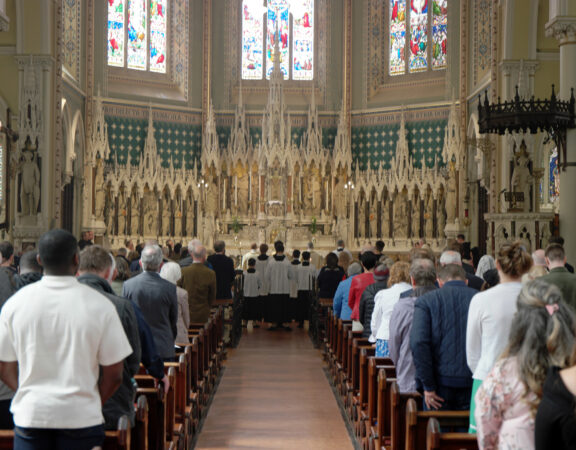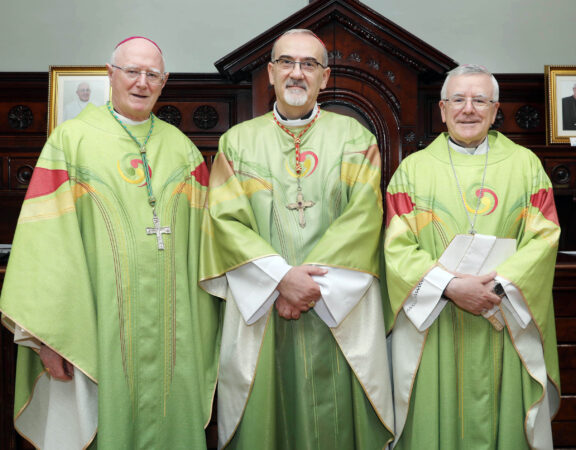Speaking notes of Archbishop Dermot Farrell for a Panel Discussion during Ecumenical Bible Week on the topic A New Pentecost: Moving to the Edges
June 9, 2022
I thank you for your invitation to this Ecumenical Bible Week, and indeed for the interesting title which brings a number of questions in its wake!
In recent years there has been a great deal of talk about moving to the edges, the margins, the peripheries. However, without serious reflection and engagement, there is the risk that even a worthy image or insightful framing can leave us unmoved, or leave us on the surface of things, repeating formulae which sound good, but have lost their power to call us to renewal and change of heart. Sometimes, I think, in Ireland, we need to ask who is now on the margin? As the Church finds itself relegated to the edge of life in a fractured society like ours, I find myself not only asking “what is the Spirit saying to the Churches” today, but also asking what the Spirit saying within the Churches? Where is the Spirit bringing the Church? Put another way, ‘what is the Spirit empowering the Church for, or empowering the Church to?
During the last 200 years, until recently our churches existed and functioned in a society and a culture which broadly cohered with the values of the other. That gave purchase to all sorts of illusions about the character of our culture, and the vibrancy of the churches. In the last 20 years that illusory symbiosis has crumbled before our eyes; in the next decade, the effects of that disintegration will become more and more evident. The churches and communities of faith are therefore having to re-discover how we fulfil the mission entrusted to us by the Lord, and whose urgency we have come to know for ourselves in our tasting of ‘the goodness of the Lord’ (Ps 34:8) and the joy of the gospel.
Upon reflection, I find myself wondering if authentic Pentecost is not always new? After all, must Pentecost not always be so, as the Spirit who comes is always new! Is not the Spirit of the living God, the Spirit of newness and renewal? In this perspective we might consider the following:
1. The importance of discernment based on deep listening to faith communities, and to the Word of God with those communities. It is important that this process continue and become embedded in the life of the Church. Sustained synodality is the challenge. We need to follow the synodal dynamic animated by the Holy Spirit. People have to be meaningfully heard and responded to in the institutional life of the Church. The people of God must journey together.
2. If the Church in Ireland is to be renewed, we must develop an active ministry to young people and the younger generations, i.e. those who are under 40. Younger people are definitely on the edge. Some of these young generations have undoubtedly heard the gospel proclaimed, but we need to ask what will bring the Word to life for them—and indeed for us? This surely draws attention to the transcendent dimensions of human existence. Here also much work has to be done.
3. The way of the future is lay involvement with co-responsibility. We have no option but to build a Church that is inclusive of all, where all participate in every level of parish life, and where co-responsibility is essential.
Tomorrow is the Feast of St Ephrem the Syrian (c. 306–373). In his Commentary on the Diatessaron, reflecting on the richness of Scripture, he remarks,
One might realize that a person is only capable of discovering one out of the many riches that exist in [a passage of Scripture] … A thirsty person rejoices because they have drunk: one is not grieved because she proved incapable of drinking the fountain dry. The fountain can conquer your thirst, but your thirst cannot conquer the fountain. (I:18–19)
My friends, let us turn to the Word and its riches, to the spring of living water, that our own thirst may be sated, and that its overflowing riches may bring life to our weary world, and provide direction and renewal for our disheartened communities.

(St Ephrem the Syrian, 11th century, Chios)







